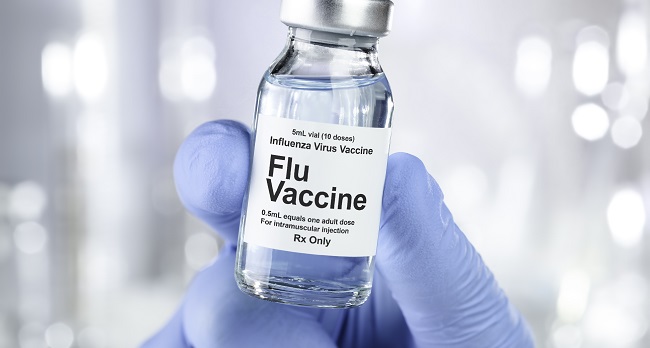Vaccination / Immunization Service

Influenza Vaccine
Influenza (flu) is a highly contagious respiratory illness that caused by influenza viruses (Influenza Viruses Type A and Type B). Influenza viruses cause seasonal flu epidemics each year. They infect the respiratory system - nose, throat, and lungs. Elderly, young kids and people with some health conditions are prone to get influenza and have serious flu complications.
Get your Influenza Vaccine now! RM100 RM75 only!
Influenza Vaccine
Everyone ≥ 6 months old need to get an influenza (flu) vaccine every year.
Influenza vaccination is suggested for the following people:
- Elderly that aged ≥ 65 years
- Adults and children with chronic respiratory or cardiac disorders, include asthma, cyanotic heart diseases.
- Adults and children with chronic metabolic diseases such as diabetes mellitus.
- Adults and children with chronic kidney dysfunction.
- Adults and children with immunodeficiencies due to disease (HIV/AIDS) or immunosuppressant medication or radiotherapy.
- Children (6 months old up to 18 years old) who receive long-term medications that contain aspirin – as Reye’s syndrome typically occurred after an influenza infection
- Hypersensitivity to egg or chicken protein, neomycin, formaldehyde, polysorbate 80 or gentamicin.
- Immunization shall be deferred and postpone in person with febrile illness or acute infection.
The vaccine is given via intramuscular injection either over the shoulder, thigh or buttock area.
- Single dose (0.5ml)
- For children who have not previously been vaccinated/ unprimed, a second dose should be given after an interval of 4 – 6weeks after first dose.
- Required annually revaccination
- Firstly, to obtain optimum and continuous protection as a person’s antibody production from vaccination declines over time.
- Secondly, vaccines are used to protect the most common viruses that research shown during the influenza season as influenza viruses are constantly evolving. Therefore, vaccine must be constantly updated and reviewed.
No. It takes approximately two weeks after vaccination for our bodies’ immune system to develop the antibodies to protect against influenza virus.
- Protect against influenza virus infection.
- Reduce the severity of illness if infected.
- Lower the risk of hospitalization.
- Protect pregnant ladies during and after pregnancy.
- Herd immunity
- Transient swelling, redness, pain, and induration locally
- Myalgia, malaise, and fever for 1-2 days starting within a few hours post vaccination
- Very rarely, neurological (Guillain- Barre), glomerulonephritis, ITP or anaphylactic reaction occurs.